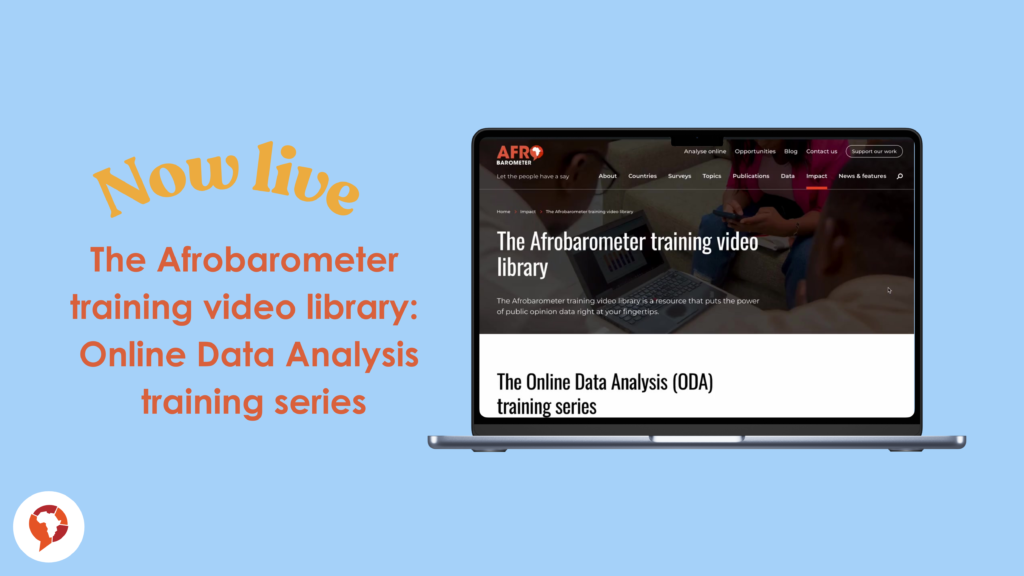Afrobarometer, a pan-African, non-partisan research network responsible for high quality data and analysis on Africa, has unveiled a new virtual training video library. This move will serve as a significant step towards democratizing data and ensuring that African voices are central to policy and development conversations.
This initiative provides free, step-by-step guidance through a series of short and user-friendly videos, designed to empower anyone, from government officials and journalists to students and the general public, to confidently navigate and utilize its vast survey data.
The training focuses on the organization’s online data analysis tool, which offers free access to more than 25 years of rich survey data. This treasure trove of information, gathered from over 400,000 interviews across 42 African countries, covers critical issues like democracy, governance, and quality of life, and can now be explored without requiring advanced statistical skills.
According to Carolyn Logan, Afrobarometer’s director of capacity building, the initiative’s broader goal is to ensure African voices are not just heard but actively used to shape policy and development. “This training video library makes it easier for everyone to use Afrobarometer’s data, giving them the tools they need to translate data into insights that matter,” she said.
In accordance to Dominique Dryding, capacity building manager, the library is designed to make the organization’s wealth of resources more accessible for everyone. “By equipping researchers, students, journalists, and policy makers with practical, user-friendly guidance, we hope to strengthen the ability of Africans everywhere to engage with the data and apply it to pressing policy challenges,” Dominique Dryding added.
This video library is the latest component of Afrobarometer’s comprehensive capacity building programme, which stands as a core pillar of the organization. The programme includes a range of initiatives such as summer schools, statistical training workshops, thematic research workshops, and university outreach efforts.
They all work in concert to nurture a new generation of data-savvy researchers and ensure that African lived experiences directly inform the decisions that shape the continent’s future.


